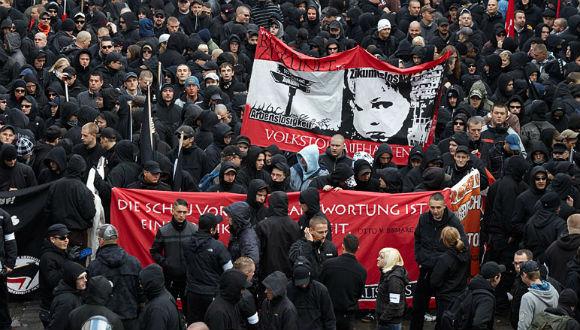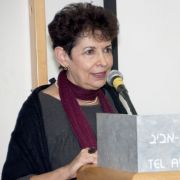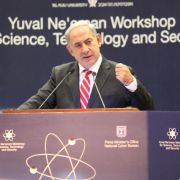"Severe Escalation" of Anti-Jewish Atmosphere in 2013
Despite a 20% decline in the number of violent incidents against Jews, last year saw a sharp rise in abusive language and behavior, threats, and harassment of Jewish people on an individual basis around the world, according to the annual report presented by Tel Aviv University's Kantor Center for the Study of Contemporary European Jewry and the Moshe Kantor Database for the Study of Contemporary Antisemitism and Racism, in cooperation with the European Jewish Congress.
At a press conference accompanying the release of the report, Prof. Dina Porat, head of the Kantor Center, and Dr. Moshe Kantor, president of the European Jewish Congress, highlighted the "severe escalation in anti-Jewish atmosphere," borne out by daily attacks on individuals who reported feeling that their personal safety and communal well-being were jeopardized. "2013 was a difficult year not because of violent events — there was a decline of about 20% from 2012, which was a particularly murderous year because of [the terrorist attack on a Jewish day school in] Toulous," said Prof. Porat. "What made the year difficult was the escalation of harassment, insults, and visual caricatures of Jewish people, penetrating the center from the extreme left and right fringes of society."
77% of harassment and discrimination events go unreported to authorities
Prof. Porat cited the findings of the European Union's Fundamental Rights Agency (FRA), which conducted a survey of 6,000 Jews in eight European countries. The survey found that in 77 percent of cases, Jewish victims of harassment or discrimination did not report the fact to authorities, 90% had experienced anti-Semitic abusive language and behavior, and a third considered leaving Europe because of anti-Semitism. 40 percent of those surveyed did not wear identifying Jewish symbols outside the home and a quarter did not attend Jewish events for fear of being attacked.
"This year, there was no one event that could be pointed at to blame for the sentiment in the world," said Dr. Porat. "We cannot pinpoint a reason or a few reasons, no military event in the Israel-Palestinian conflict. We are seeing a return to classic anti-Semitism. This is our conclusion."
Dr. Porat stressed that the report did not rely only on "Jewish perception or feeling," but also offered an analysis of 14,000 emails bearing anti-Semitic content sent over the last year to the Israeli embassy in Berlin.
Treatment of Jews seen as "barometer of societal health"
Dr. Kantor said that a society's treatment of Jews can be seen as a barometer of societal health. "Everything bad starts with anti-Semitism but does not end with it," said Dr. Kantor. "The Jewish people are an indicator, a barometer, of a society's wellbeing. What's bad for the Jews is eventually bad for society. Our idea is to protect Jews by protecting all people, because most of the world's Jews do not live in Israel, but in the Diaspora."
In the report, researchers registered and analyzed 554 violent anti-Semitic acts perpetrated with or without weapons, by arson, vandalism, or direct threats against Jewish individuals or institutions, including synagogues, community centers, schools, cemeteries, monuments, and homes. The highest number of violent cases took place in France. A decline in violent cases was noted in Italy, Poland, the United States, and Australia, with a rise registered in the United Kingdom, Canada, Germany, and Ukraine. According to the report, the decade 2004-2014 witnessed a rise in violent incidents over the preceding decade.
Dr. Kantor said that the Internet facilitated the flow of neo-Nazi ideology around the world. "The global informational flood through the Internet and other means of delivery make confronting the conventional challenges even more difficult," Dr. Kantor said. Modern neo-Nazism can trigger confrontations between countries and major parts of the population.
"Anti-Semitism in 2013 became very politicized," Dr. Kantor continued. "People are fingerpointing — 'he's an anti-Semite, she's an anti-Semite.' This is a very bad sign, because anti-Semitism is the subject of security, not politics, which is precisely why our research is so important. We provide the numbers, the exact quality of anti-Semitism in the world. We fight against capabilities, not events."
To learn more, read the full 2013 Kantor report.
As originally reported by AFTAU






